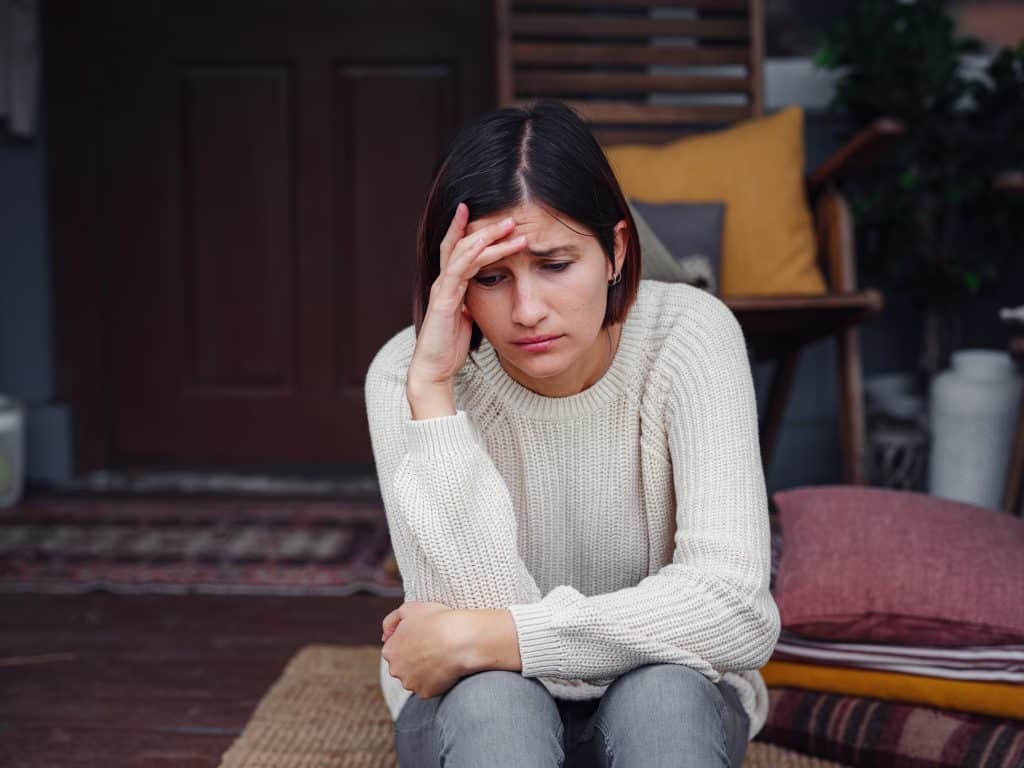Having to deal with grief after losing a loved one is one of the most difficult things a person can go through. It’s not just the emotional pain that grief can cause but also the physical effects. Grief can take a toll on your body, and it’s important to be aware of these effects so that you can cope with them in the best way possible. To help you better understand, this post will cover some of the effects grief has on your body. It will also provide some advice on how to cope with these effects.
Contents
What Grief Looks Like

Grief is often misunderstood as an emotion that can be best described with words like sadness, anger, or despair. While it is true that these emotions are often a part of the grieving process, grief is much more than just a feeling. It is an all-encompassing experience that can affect every aspect of a person’s life. The death of a loved one, for example, can lead to feelings of isolation and loneliness, as well as a sense of guilt or regret.
In short, grief is complex and unique to each individual. There is no one right way to grieve and no time limit on how long the grieving process will take. Those who are grieving should give themselves the time and space to experience their grief in whatever way is most helpful for them.
The Effects Grief Has On Your Body
If you have ever had to process grief, then you know that it can be an exhausting and all-consuming experience. It can be difficult to eat, sleep, or even function normally when you’re grieving. This is because grief takes a toll on your body in many different ways. This section will explore some of the physical effects grief can have.
Fatigue

Grief is a complex and often prolonged emotion that can take a toll on your physical health as well as your mental and emotional well-being. One of the most common symptoms of grief is fatigue. This is not the same type of fatigue that comes from lack of sleep or physical exertion.
Instead, it is a deep exhaustion that can feel impossible to overcome. It can be caused by the stress of dealing with loss, as well as the changes in your sleep patterns and eating habits that often accompany grief.
If you are struggling with fatigue, it is important to talk to your doctor or a mental health professional. They can help you to manage your symptoms and develop a plan for taking care of yourself during this difficult time.
Increased Risk Of Heart Attack

The death of a loved one is always a difficult experience, but for some people, the grief process can be especially challenging. In fact, research has shown that grief can actually increase the risk of a heart attack. One study found that widows and widowers were more than twice as likely to experience a heart attack in the first year after the death of a spouse, and the risk remained elevated for several years after the loss. While the exact mechanisms are not fully understood, it is thought that the stress of grief can trigger an inflammatory response in the body, which can lead to an increased risk of heart disease.
Additionally, grief can often lead to unhealthy lifestyle choices, such as smoking or drinking, which can further contribute to the development of heart disease. While there is no easy solution to dealing with grief, it is important to be aware of the potential risks involved. Recognizing the signs of grief-related heart disease and seeking help from a medical professional can help to minimize the risks and ensure that you are taking care of your heart during this difficult time.
Digestive Problems

Grief is a powerful emotion that can take a toll on your body in many ways. One of the lesser-known effects of grief is that it can cause digestive problems. While grieving, you may lose your appetite or find that you are unable to eat certain foods. This can lead to weight loss, malnutrition, and other health problems. In addition, the stress of grieving can cause stomach aches, indigestion, and even diarrhea.
If you are struggling with digestive problems, it is important to talk to your doctor. They can help you to manage your symptoms and develop a plan for taking care of yourself during this difficult time. Some research has also shown that grief can increase the risk of developing irritable bowel syndrome (IBS).
Weakened Immune System

When you think of grief, people often think of the emotional toll it takes on a person. You might picture someone who is sad and withdrawn, who has trouble sleeping or eating. What you might not realize is that grief can also have a profound impact on your physical health. Studies have shown that grief can cause a weakened immune system, making you more susceptible to infection and illness. This is believed to be due to the release of stress hormones like cortisol, which can suppress the activity of the immune system.
Additionally, grief can lead to chronic inflammation, which further impairs the ability of the body to fight off disease. While the physical effects of grief can be temporary, they underscore the importance of taking care of yourself during times of loss. With proper self-care, you can help to protect our health and well-being during these difficult times.
Physical Aches And Pains

Grief is a complex and deeply emotional experience, and it can take a toll on your body. It’s not unusual for people who are grieving to report physical aches and pains, including headaches, body aches, and even stomachaches. These physical symptoms can be chalked up to the stress of grief, which, as mentioned before, takes a toll on your immune system and can leave you feeling vulnerable to illness.
Additionally, grief can cause you to lose sleep or have difficulty concentrating, both of which can lead to fatigue and further physical discomfort. While the pain of grief is often difficult to bear, it is important to remember that these physical symptoms are temporary and will eventually subside. With time and self-care, your body will heal, and you will find yourself feeling stronger again.
Tips For Managing Grief

While there is no single “right” way to grieve, there are some things that can help you through this tough time. First, it’s important to give yourself time to mourn. It’s normal to feel sad, angry, or confused after death, and it’s ok to take time off from work or other obligations if you need to. You should also try to stay connected with your loved ones and other people who care about you. Talking about your feelings can be helpful, and spending time with people who understand what you’re going through can provide some comfort.
Additionally, try to take care of yourself physically by eating well, exercising, and getting enough sleep. Finally, don’t hesitate to seek professional help if you are struggling to cope with your grief. A counselor or therapist can provide support and guidance as you navigate this difficult time.
Understand The Effects Grief Has On Your Body!
Grief is a complex and often difficult emotion to deal with. It can take a toll on your mind, body, and spirit. However, with time and self-care, you will heal and feel stronger again. And it can not be stated enough if you are struggling to cope with grief, be afraid of getting help. You don’t have to go through this tough time alone. A professional can help you navigate your grief in a healthy and productive way. So while it may take a long time to work through your grief, know that there is hope for a better tomorrow.


